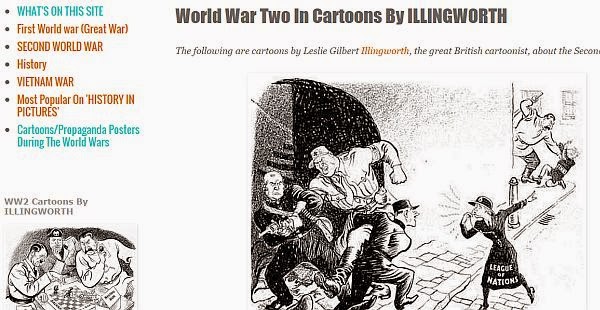It is after 30 years that new book on the second World war has been written. It is The Storm of War: A New History of The Second World War by Andrew Roberts. Why 30 years? The earlier book was the classic Rise and Fall of the Third Reich by William S Shirer. Shirer's book is a gem. Absolute page-turner with a jungle of details and figures. A must read.
Then why did Roberts write another book on WW 2? Because in the intervening years, new documents came to light that added to what is known.
 In happier times. Werner von Blomberg, Hermann Göring, Werner von Fritsch, and Adolf Hitler at the "Reich Party Rally for Work," Nuremberg (September 1937) .
In happier times. Werner von Blomberg, Hermann Göring, Werner von Fritsch, and Adolf Hitler at the "Reich Party Rally for Work," Nuremberg (September 1937) .At the end of 1937, Hitler believed that Germany's economic and military-strategic situation would soon permit the launching of a successful war of conquest. But when he shared his plans with the most important representatives of the military leadership at a secret conference November 5, 1937, Hitler met with skepticism, not enthusiasm. Foreign Minister Konstantin von Neurath, Commander-in-Chief of the Army Werner von Fritsch and Minister of War Werner von Blomberg were all of the opinion that Hitler's war plans were dangerously premature. Contrary to Hitler's conviction, they believed that Great Britain and France could not be kept out of the conflict and that in any case Germany lacked the resources and military strength for a war on several fronts. Hitler, who was convinced of the absolute necessity of "conquering living space" [Lebensraumeroberung], decided to rid himself of these conservative skeptics in the army and foreign ministry. In early 1938 he used Blomberg's marriage to a former prostitute and Fritsch's alleged homosexuality as pretexts for removing both of them from office. Moreover, Hitler used the "Fritsch-Blomberg Affair" to carry out a profound restructuring and reorganization of the military and foreign policy leadership. He dissolved the Ministry of War and took personal control of the armed forces, which were now led and coordinated by the new High Command of the Wehrmacht [Oberkommando der Wehrmacht or OKW] under General Wilhelm Keitel. He named Walther von Brauchitsch as Fritsch's successor and dismissed or transferred sixty high-ranking officers. Foreign Minister Neurath was replaced by Joachim von Ribbentrop, and Walther Funk became Minister of Economics. By March 1938, Hitler had thus achieved complete control over the military leadership and the country's foreign and economic policy.
Roberts says a lot of interesting things. Like....
How did Hitler become the chief of the Wehrmacht? How did he get rid of General Werner von Blomberg, the chief of the German army?
Hitler swiftly disposed of this irritant and seized control of the army. The Nazis were adept at smear campaigns, and Blomberg was forced to resign when it was revealed that his wife had posed for pornographic photographs.
Churchill often wondered why the Germans let the British soldiers slip away from Dunkirk. Hitler could have captured more than a quarter of a million prisoners of war and held the British government to ransom, but instead he ordered his panzers to halt outside Dunkirk. Then why?
Roberts says it was because of one of many Hitler's strategic blunders. "Hitler's antisemitism, culminating in the Holocaust, was central to his Nazism but it did nothing to aid Germany's chances of winning the war, and possibly a good deal to retard them."
If Hitler hadn't taken control of Germany's armed forces he might have won the war, but if invading Russia was his greatest error (an ill-fated plan "buried so deep within the Nazi DNA that it could not be stopped", Roberts writes), then his second major gaffe was underestimating America.
Relations between Britain and America during WW 2
"There was nothing inevitable about the wartime alliance between America and Britain," he says. "There had been much rivalry between Britain and the United States in the 1920s and 1930s, exacerbated by ignorant stereotyping on both sides."He even quotes a former US military attaché to London as saying, "The English feel about us just the way we feel about a prosperous nigger."
Rape during the war
Robert's American admirers will not enjoy having the US army's record of raping civilian women compared to that of the Red Army, even if Roberts concedes that the Russians were the more determined violators. He also exposes racism in the US army, observing that 79 per cent of those executed for rape were black, when blacks made up only 8.5 per cent of the US army in Europe.
 Stalingrad was turned into rubble as the Wehrmacht and Soviet army battled here for years.
Stalingrad was turned into rubble as the Wehrmacht and Soviet army battled here for years.The Russians made the most sacrifices
America's crucial contribution to the war is not overlooked, but Russia's self-sacrifice and heroism is ultimately the dominant theme. "It was the Russians who provided the oceans of blood necessary to defeat Germany," he writes. "At the heart of the Second World War lies a giant and abiding paradox: although the western war was fought in defence of civilisation and democracy ... the chief victor was a dictator who was as psychologically warped and capable of evil as Adolf Hitler."















































